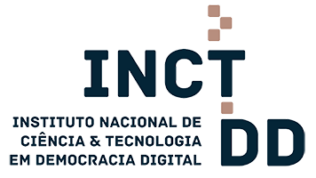The circulation of dangerous speech in the 2020 Brazilian elections
28 de junho de 2023 2023-06-28 17:15The circulation of dangerous speech in the 2020 Brazilian elections
The circulation of dangerous speech in the 2020 Brazilian elections
28 de junho de 2023
This research project aims to identify the online distribution network of dangerous political content by radicalized constituencies during the 2020 Brazilian municipal elections. We have assumed that dangerous and uncivil messages based on longitudinal prejudices or latent social anxieties gain greater engagement online, fostering a climate of opinion conducive to the creation and circulation of fake news. Additionally, our second assumption is that the more rooted is the social conviction on untruthful and conspiratorial facts, the more implications dangerous speeches can generate for the distortion of public opinion and for undemocratic behavior of the voter. Based on the mapping of pages and public groups on Brazilian politics with a radicalized bias, ranging from far-right to far-left networks, we propose 1. to monitor the influx of dangerous messages; 2. to detect the most viral dangerous contents; 3. to detect the formation of communities of cohesive interests through which these messages are amplified; and 4. to identify the participation of micro-influencers (ordinary accounts) and macro-influencers (public figures) to foster dangerous arguments and content for the electoral and democratic processes. Thus, the research also aims to analyze the connection of dangerous and hateful speeches with social and political reality.
Últimas notícias
- Escola de Inverno oferece cursos de métodos digitais de pesquisa
- Sessão pública de “A Câmara” destaca desafios enfrentados pela bancada feminina
- “A Câmara” revela controvérsias na atuação de deputadas federais em 2022
- Conferência debate estratégias para combater a desinformação
- Nova seleção para pesquisador(a) pós-doc do INCT.DD
2017 2018 2019 Ana Claudia Farranha ana javes luz bolsonaro Camila Mont'Alverne camilo aggio campanha campanha 2018 campanha digital campanhas campanhas digitais Christiana Soares de Freitas ciência ciências sociais Claudia Cappelli Claudio Luis de Camargo Penteado comportamento político comunicação e política congresso democracia Democracia Digital Diego Canabaro discussão política edna miola eleições eleições 2018 escola de verão Francisco Paulo Jamil Marques Internet livro Maria Paula Almada metodologia métodos quantitativos Paula Karini Amorim pesquisa podcast podcast de política polarização Política política em rede relatório de pesquisa transparência whatsapp






